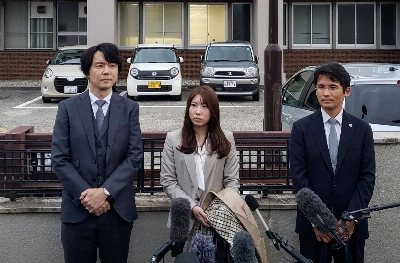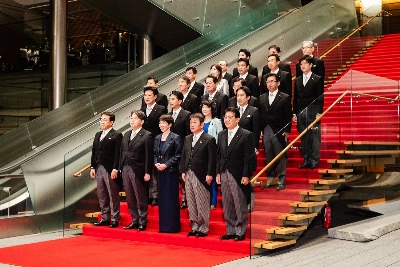NAHA, Okinawa Pref. -- Noted U.S. pundit James Carville, one of the architects of Bill Clinton's victory over George H.W. Bush in the 1992 U.S. presidential election, became famous for coining the political slogan 'it's the economy, stupid.'</PARAGRAPH>
<PARAGRAPH>Hirokazu Nakaima's victory in Sunday's Okinawa gubernatorial election showed he and his supporters understood Carville's meaning. For whatever concerns local voters may have of U.S. bases in their backyard, the election showed the majority want a governor who can use his ruling party connections to secure both traditional pork-barrel projects and new, innovative businesses for the local economy.</PARAGRAPH>
<PARAGRAPH>Final results showed that Nakaima, who was backed by the ruling Liberal Democratic Party and its junior coalition partner, New Komeito, won 347,303 votes. Former Upper House member Keiko Itokazu, who had the backing of eight major opposition parties, won 309,985 votes.</PARAGRAPH>
<PARAGRAPH>The election was closely watched not only in Okinawa but also in Tokyo and Washington, where it was seen as a referendum on last May's bilateral base realignment agreement.</PARAGRAPH>
<PARAGRAPH>While Prime Minister Shinzo Abe and central government, LDP and New Komeito officials heaved a sigh of relief that Nakaima, whom they campaigned heavily for, won, nobody sees his victory as a sign of support for the current plan to relocate the U.S. Marine Corps Air Station Futenma to Camp Schwab in the Henoko district near Nago by 2014.</PARAGRAPH>
<PARAGRAPH>'Both Nakaima and Itokazu campaigned against the –
V-shaped runway plan. In other words, nearly 658,000 Okinawan voters voted against the plan. In addition, unlike the election in 2002, where (Keiichi) Inamine won by nearly 170,000 votes, this time the margin of victory for Nakaima and the conservatives was only 37,000 votes, which suggests the base issue is more important now than in the last election," said associate professor Robert Eldridge of the Osaka School of International Public Policy.
Like the tough negotiator and back-room player his admirers and critics claim he is, Nakaima kept his cards close to his vest when it came to explaining how he will handle negotiations with the central government over Futenma.
While he did say after his victory Sunday that he wants to see movement on the relocation within the next three years, he refused during the campaign to answer questions on what specific changes to the plan he might demand from Tokyo before giving his approval.
Instead, Nakaima, former head of the Okinawa Chamber of Commerce and Industry, campaigned by emphasizing his deep connections in the Okinawan business community and the Tokyo politicians and bureaucrats who determine how much national funding the prefecture gets for public works projects.


















With your current subscription plan you can comment on stories. However, before writing your first comment, please create a display name in the Profile section of your subscriber account page.